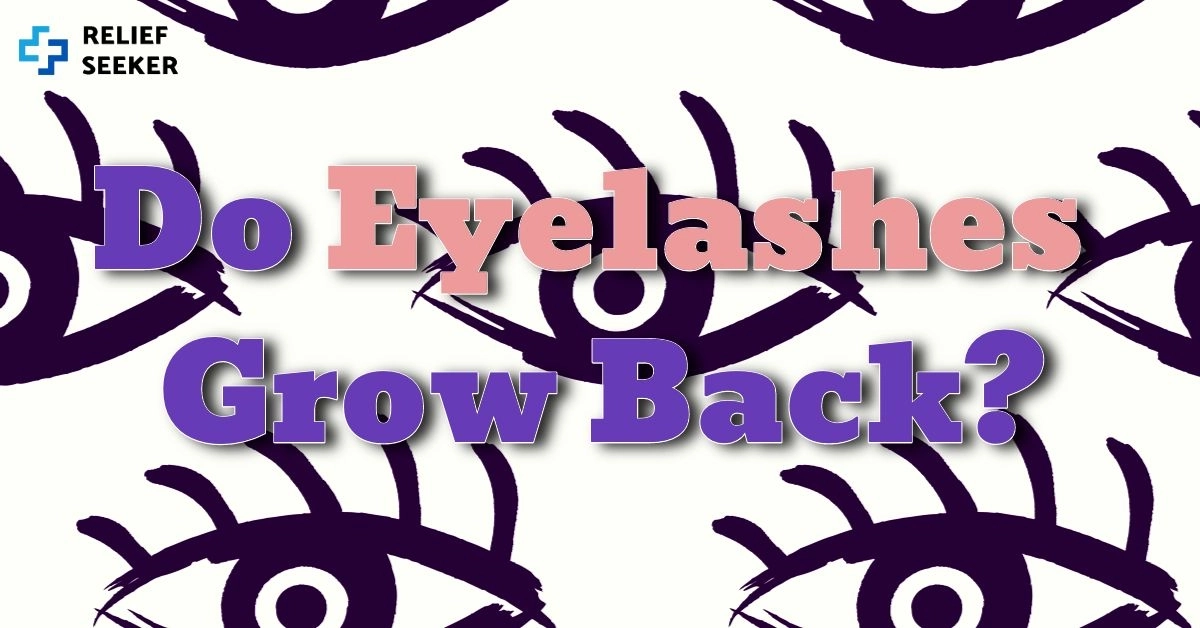Did you ever wish on an eyelash as a child, hoping that all your dreams would come true? We all did. These days, we’re not only hoping for our lashes to stay in, but we’re also hoping that somehow they’ll become thicker, longer, and stronger overnight.
Like the hair on our head, it’s also very natural for our lashes to fall out from time to time, and if you weren’t aware, it is perfectly normal to lose up to 100 strands of (head) hair a day. Now, if you’re worried about the same happening to your eyelashes, fear not; you can lose your eyelashes, but not to the extent that you can of your head hair.
And, lucky for any woman (not trying to be sexist) or person concerned about eyelash loss, there are many options and courses of treatment available to once again have those lashes fluttering as they did in their heyday.
What Causes Eyelash Loss?
There are many reasons a person can lose their lashes. Whether you’re an eyelash curler or dyer, there are other reasons why you’re eyelashes might be taking the plunge to the floor.
Lash Extensions
Lucious lashes have been on-trend since the turn of the century, when in 1902 Karl Nessler, a famous hairdresser, created false lashes from the hair of a wig for an actress to wear on the set of a movie. False lashes are applied directly to the existing natural lashes with a medical-grade adhesive to give those wearing them a dramatic look and longer length. Unfortunately, the false hair fibers can rip out or damage the natural hair underneath as they grow out.
Burns from Eyelash Curlers
If you use heated eyelash curlers, you run the risk of burning those beautiful flutters off if it’s too hot.
Eyelash Pulling
There is a psychological condition known as trichotillomania, characterized by a person’s impulse to pull out their hair, most commonly their eyelashes.
Thyroid Conditions
The thyroid produces hormones that help regulate your metabolism, mood, and other things; two of those hormones together are called “thyroid hormone.” The pituitary gland produces a chemical that stimulates the production of thyroid hormone, and if you have too much or too little, it can cause a variety of symptoms, including hair loss on your head and face.
Cutting your Eyelashes
Eyelash cutting typically occurs when a child becomes curious about scissors and is less common in adults, but when you cut your eyelashes, well, they become shorter.
Hair Loss Conditions, like Alopecia
Alopecia is an autoimmune disease that causes your immune system to attack your hair follicles, which can sometimes lead to all-over hair loss, including the face and head.
Stress
Many dermatologists believe that stress is a significant factor associated with hair loss, and an increase in anxiety can very well cause your eyelashes to fall out unwantedly.
Chemotherapy
People undergoing cancer treatments are often prone to lose their hair, including the beautiful tiny hairs attached to your eyelids.
Rubbing your Eyes
A little rubbing or scratching an itch usually won’t do too much harm, but people that continuously rub or tug on their eyes can damage the lid skin and cause lashes to fall out.
Can Eyelashes Grow Back?
The simple answer is yes. Your lashes can grow back, and as you’ve read above, there are a variety of ways for your flutters to fall out. Of course, there are exceptions; for example, suppose there’s an underlying medical condition associated with your eyelash loss. In that case, your doctor may be able to treat it, resulting in your eyelashes growing back after the treatment has ended. Or, if there isn’t a root (no pun intended) cause for your eyelashes suddenly falling to their demise and no damage has been done to the eyelid or the hair follicles, and you wish to speed along the process, there are many ways, both naturally and medically for your lashes to grow back to what they once were.
Eyelash Growth Process
As you may have learned about head hair’s growth process in middle school biology, the same goes for your eyelashes. Here are the cliff’s notes for you to better understand how eyelashes naturally grow back.
Anagen Phase
Hair starts growing out of new follicles and usually lasts about 45 days for eyelashes. It is said that half of your lashes are always in this phase.
Catagen Phase
Hair growth stops, and the follicle shrinks. Sadly, if a lash falls out, it won’t grow back until this phase is complete; it can take up to three weeks.
Telogen Phase
Once the follicle is established and a lash falls out, a new one will grow in its place. Your lashes are in this phase until they fall out.
Depending on what caused your lashes to fall out in the first place will help determine the length of time it will take for them to grow back.
Tips for Speeding Up Eyelash Regrowth
Some say that patience is a virtue, BUT not when all you want is beautiful lashes! It has been said that you can speed up the growth process in a few different ways.
Eat a Healthy Diet
Having a balanced, nutritious diet can not only support overall health but can also support eyelash growth. Some nutrients that may help eyelash growth are:
Biotin - supports keratin production and is found in nuts, hearty greens like kale, brassica (cauliflower and broccoli), onions, and whole grains, such as farro.
Fruits & vegetables with Vitamins A and C - These encourage growth by boosting collagen production. Including orange and yellow fruits, like carrots and lemons, berries, or avocados, are an excellent place to start.
Niacin, also known as Vitamin B-3, improves blood flow to the hair follicles, stimulating growth. Niacin is found in many meat products, such as chicken, fish, beef, and turkey, as well as peanuts and green peas.
Iron - lacking iron in your diet may cause lashes to go into the resting phase (Telogen Phase), where they could fall out quickly, and eating iron-rich foods like leafy greens, such as spinach, dried fruit, beans, can help lashes continue to become fully grown hairs.
Take Multivitamins or Supplements
Have you heard the term “Beauty begins on the inside?” There is a lot to be said for enhancing your diet with a multivitamin or other dietary supplement specifically designed for hair, nails, and skin. One brand that we like is HUM, but you can check out our pre-vetted and reviewed supplement providers here.
Use Latisse
Approved by the FDA (U.S. Food and Drug Administration), this product, medically known as bimatoprost, or commonly referred to as Latisse, is a topical treatment used to enhance the growth of eyelashes. It was created to increase the number of hair follicles produced during the active (Anagen Phase) and can also lengthen and darken your lashes.
We recommend checking out Rory to learn more about using Latisse or our other provider options that focus on eyelash growth.
How To Prevent Eyelash Loss
We always recommend talking to your primary care doctor or dermatologist before taking any course of action; they can also help you determine if you’re suffering from one of the underlying health conditions we talked about earlier in the article.
But, if you’re concerned about your lashes and they seem to be falling out at a rapid speed, here are some things you can do in tandem with talking to your doc:
Avoid physical stress
Remove eye makeup gently, clean your eyelashes regularly, and wash your makeup off before bedtime
Try a conditioning lash serum (these are available over the counter at most drug stores)
Choose a different mascara or eyeliner
Throw out your eyelash curler
Be extra careful when removing false lashes and let eyelash extensions fall out naturally
Eyelash ReGrowth Takeaway
Here’s what we know - Eyelashes can and do grow back, as long as you’re taking proper care of them. Try your best to avoid rubbing and stray away from products that can irritate your eyes. Your eyelids are a very delicate piece of skin, and it’s best to treat them as such.
There are plenty of ways to grow those flutters back naturally, and if your eyelashes require a bit more help, we have also provided you with a few medical tips and tricks to get the lashes you’ve always wanted. But, please keep in mind that if you’re experiencing unusual symptoms and are concerned that your eyelash loss is something potentially more severe, consult your doctor right away.


